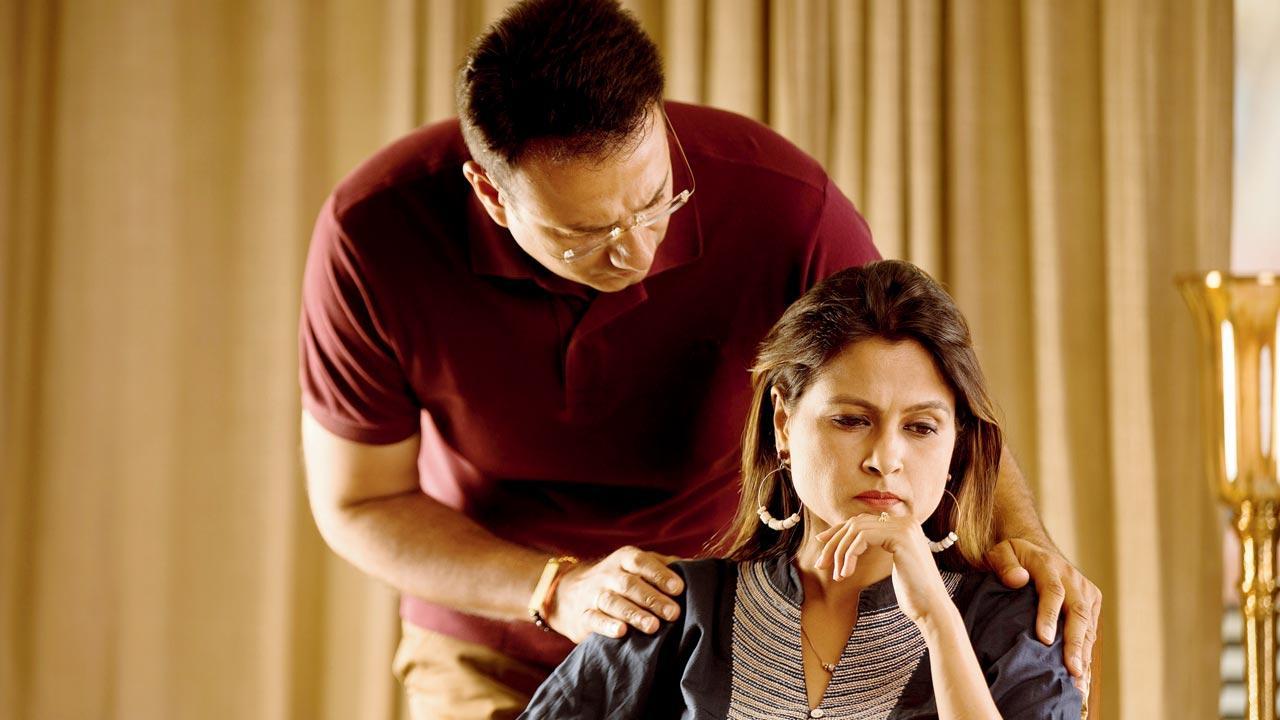Studies have revealed that 84 per cent of patients with severe Covid-19 experience mental confusion and rapid mood changes. Experts share how to support a loved one who has been diagnosed

Social support can play an important role in recovery, say experts. Representation pic
Even as the country grapples with the crippling second wave of Covid-19, experts are pointing to the rise of another parallel pandemic of mental illness. “We have observed a four-to-five-fold increase in anxiety and depression in India and globally,” says Dr Rajesh Parikh, director of medical research at Jaslok Hospital. He adds that one of the biggest contributors to this distress is the complete change in lifestyle that the pandemic has imposed. These stresses are often exacerbated by a positive diagnosis.
ADVERTISEMENT
“Many patients in our Covid ward develop a lot of mental health issues after testing positive. They become consumed by the fear that they will succumb to the virus. This anxiety can result in panic attacks and palpitations. Those who are hospitalised are prone to depression. Everyone they encounter, including doctors and staff, is wearing PPE suits; this lack of human contact can heighten anxiety,” explains Dr Priyanka Thukral Mahajan, a consultant psychiatrist at Masina Hospital. With people constantly being bombarded by news images and statistics about hospital ICUs and Covid-related deaths, they subconsciously associate a positive diagnosis with dire outcomes, adds Dr Parikh. Then, there is also the secondary anxiety of infecting family members, especially elders. “The social ostracism that comes from your apartment or building complex being sealed and declared a containment zone can cause anxiety and depression,” he observes.
Dr Sagar Mundada and Dr Priyanka Thukral Mahajan
Worryingly, however, a recent study published in The Lancet has found that 84 per cent of patients with severe COVID-19 are experiencing mental confusion and rapid mood changes even after recovery. Dr Parikh explains that the virus acts on certain regions of the brain to cause symptoms that can appear six months after the patient has recovered. “There have been reports of people becoming psychotic, losing touch with reality, becoming suspicious and paranoid, and even hallucinating; these are all individuals with no history of mental illness. Many patients experience brain fog, or confusion and disorientation. In that, they lose all sense of time, space, and people. While this is usually transitory, it can be very disturbing,” he says adding that similar conclusions have been drawn from past viral pandemics. “The influenza pandemic from 100 years ago left many with neuropsychiatric symptoms such as obsessive-compulsive disorder and Parkinson’s Disease, which they experienced for the rest of their lives,” says Dr Parikh. Even in the more recent SARS-1 and MERS pandemics, the effects of the virus on mental health were felt more than five years after the pandemics had ended.
Dr Parikh emphasises the need to restrict access to distressing news. Further, he says that family members must acknowledge the mental impact of the virus on the patient and learn coping mechanisms to better deal with the strain of caregiving. Dr Sagar Mundada, a psychiatrist at Health Spring, recommends looking beyond your friends and family for support, if necessary: “In many cases, patients may find it easier to turn to a support group where they can learn from the shared experiences of others who have recovered.”
Dhwani Damani and Dr Rajesh Parikh
For 27-year-old marketing professional Dhwani Damani, the uncertainty was as difficult to manage as the physical symptoms. “I was unprepared for the way my body changed after I had recovered [from the virus]. My periods were delayed, I lost physical strength, and my sleep cycle went haywire,” she says. To counter this, experts suggest undergoing counselling from both a physician and a mental health expert after you receive a positive diagnosis.
Seek help if
. The individual is becoming more irritable.
. (S)he talks about feeling empty, hopeless or helpless.
. Subtle behavioural changes, such as an obsession with COVID-19-related news or statistics.
. The individual is having trouble sleeping.
. (S)he is excessively concerned about the long-term impact of the diagnosis.
 Subscribe today by clicking the link and stay updated with the latest news!" Click here!
Subscribe today by clicking the link and stay updated with the latest news!" Click here!






